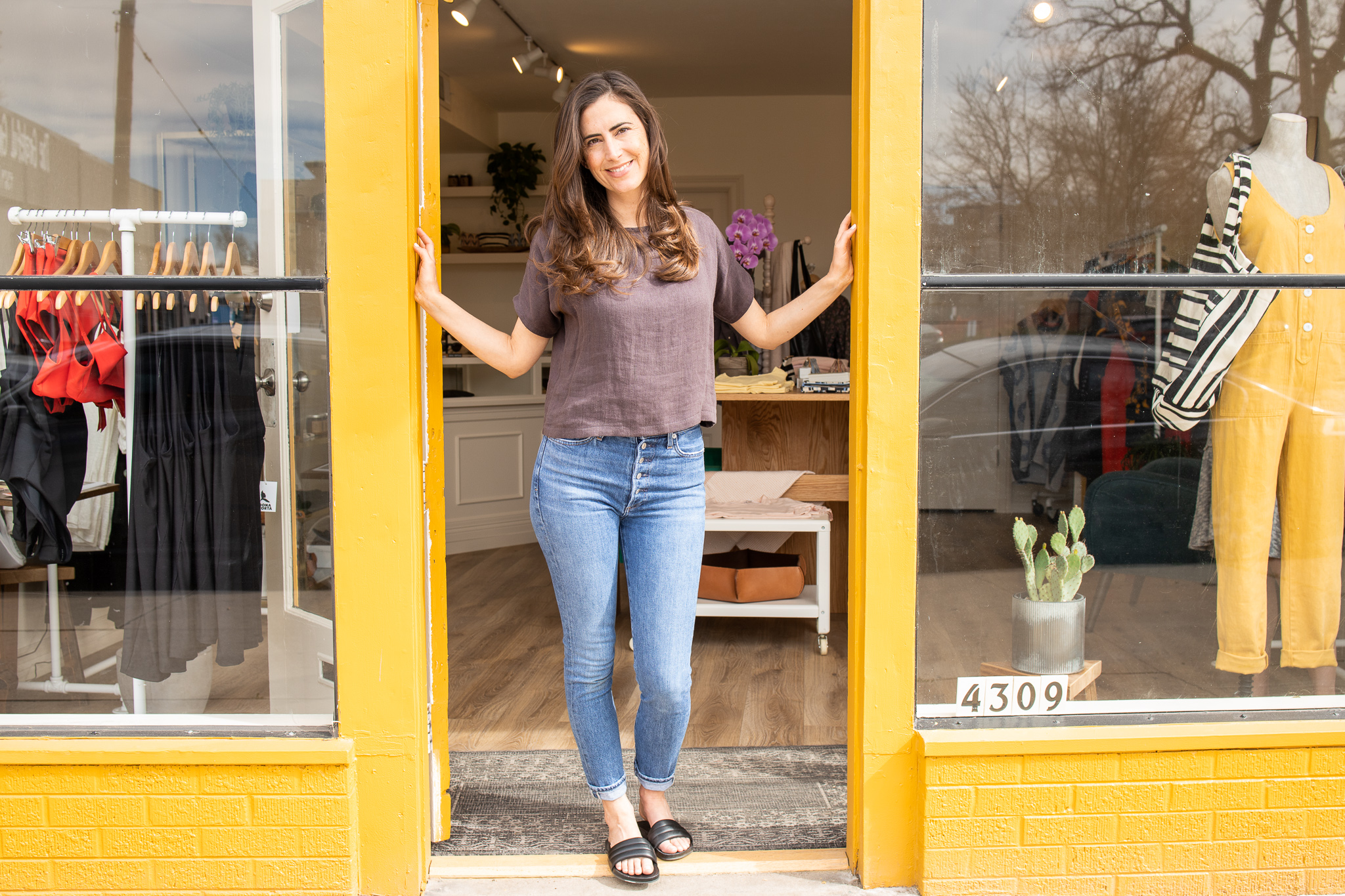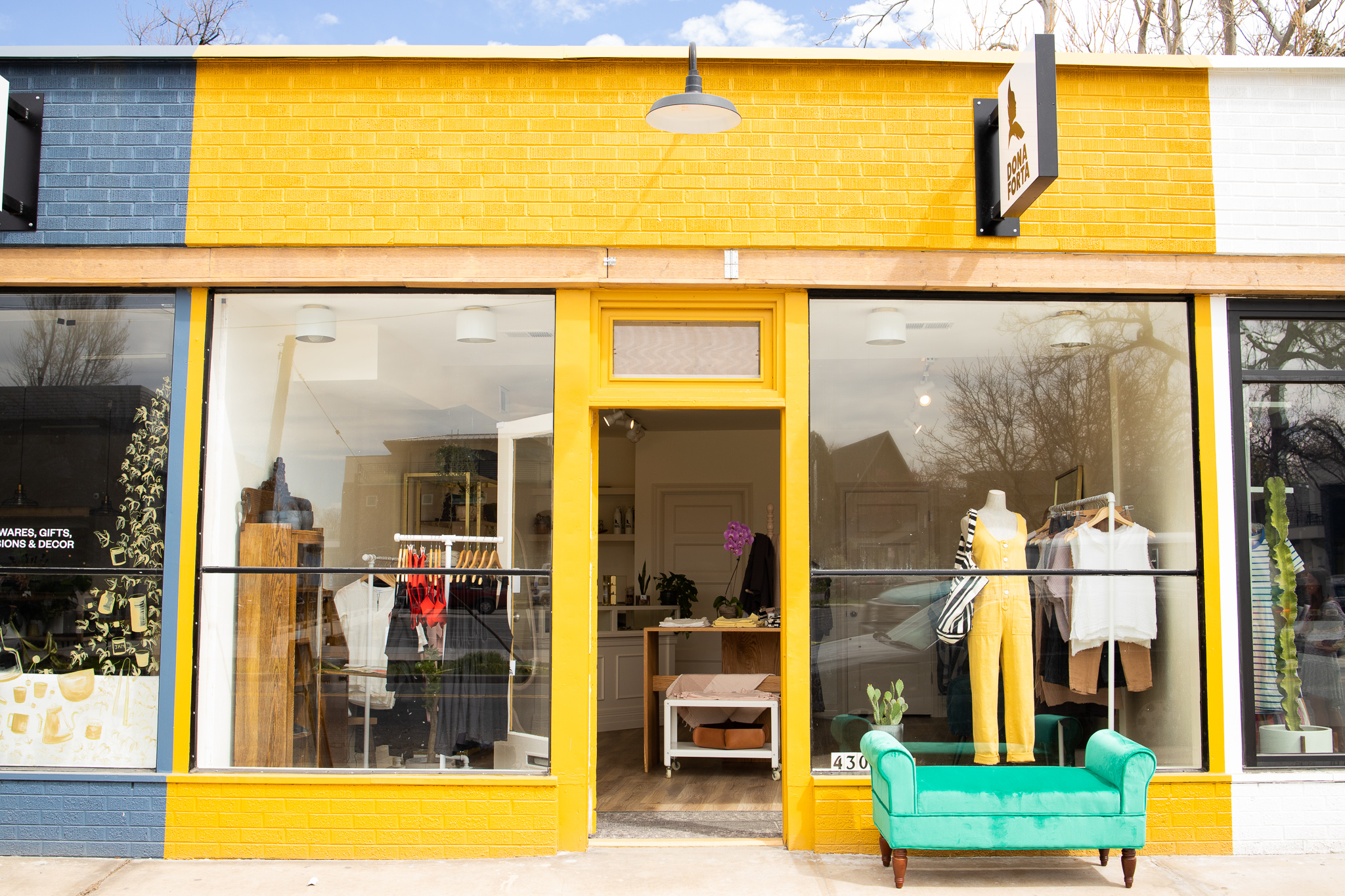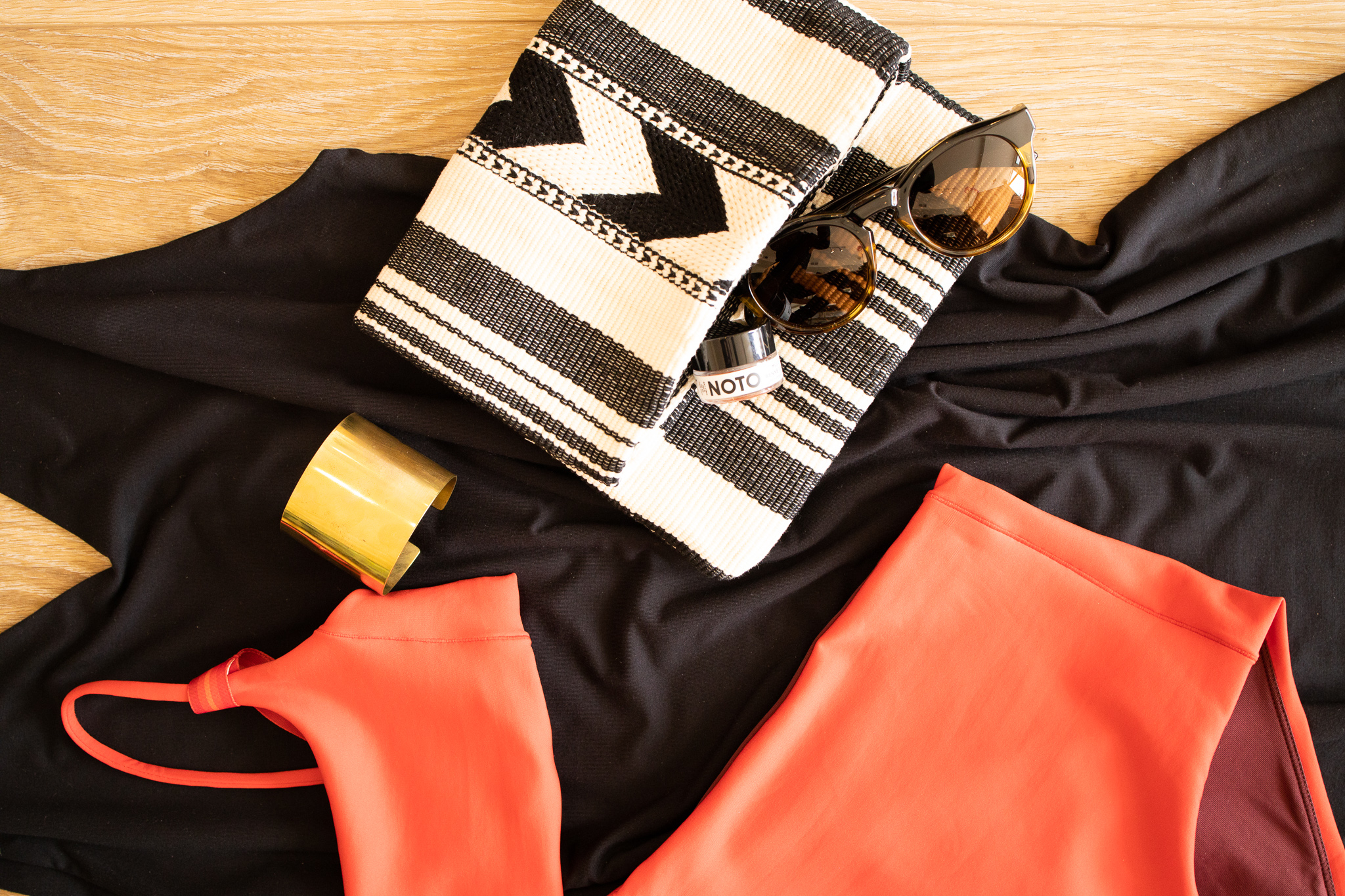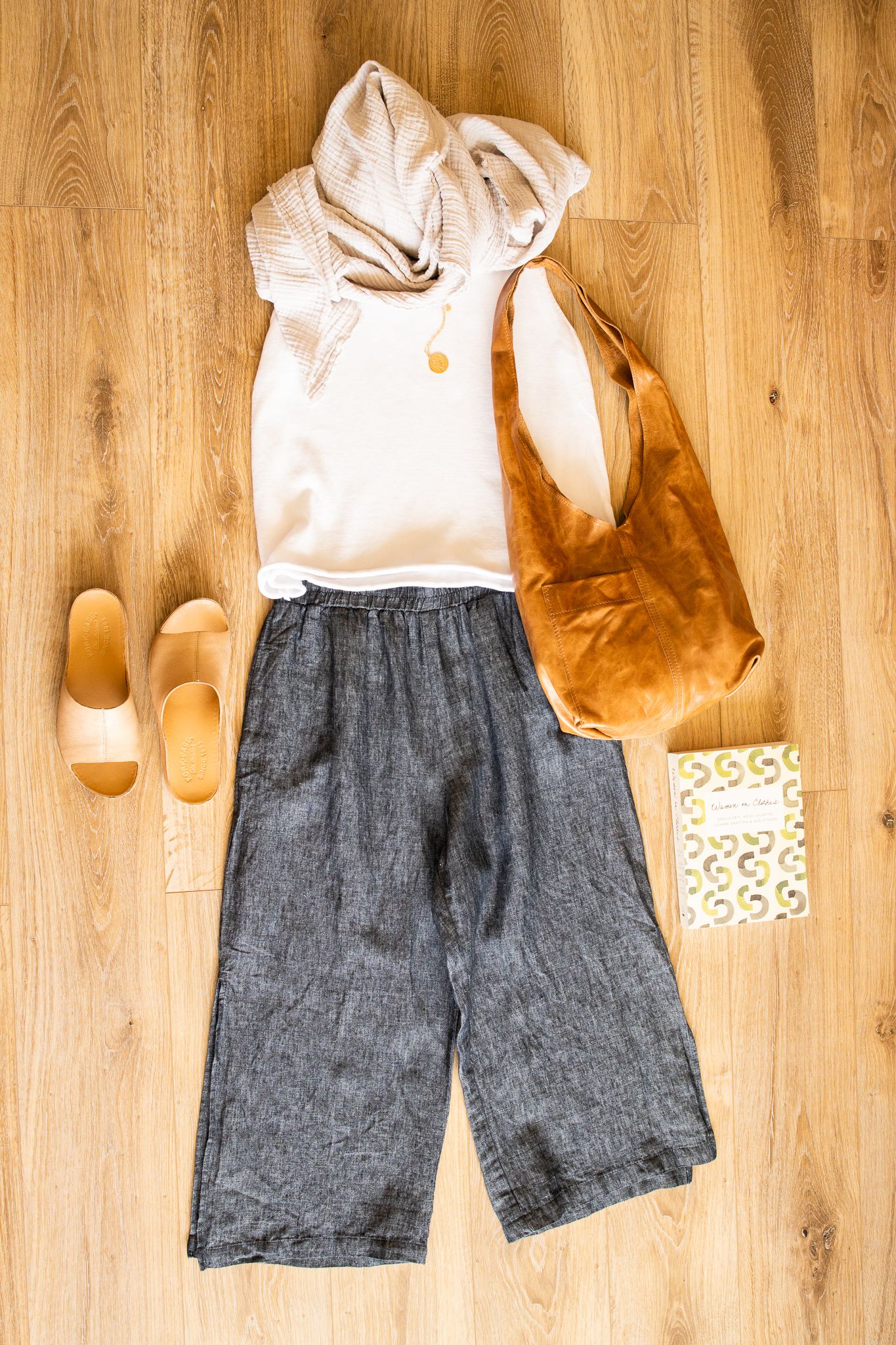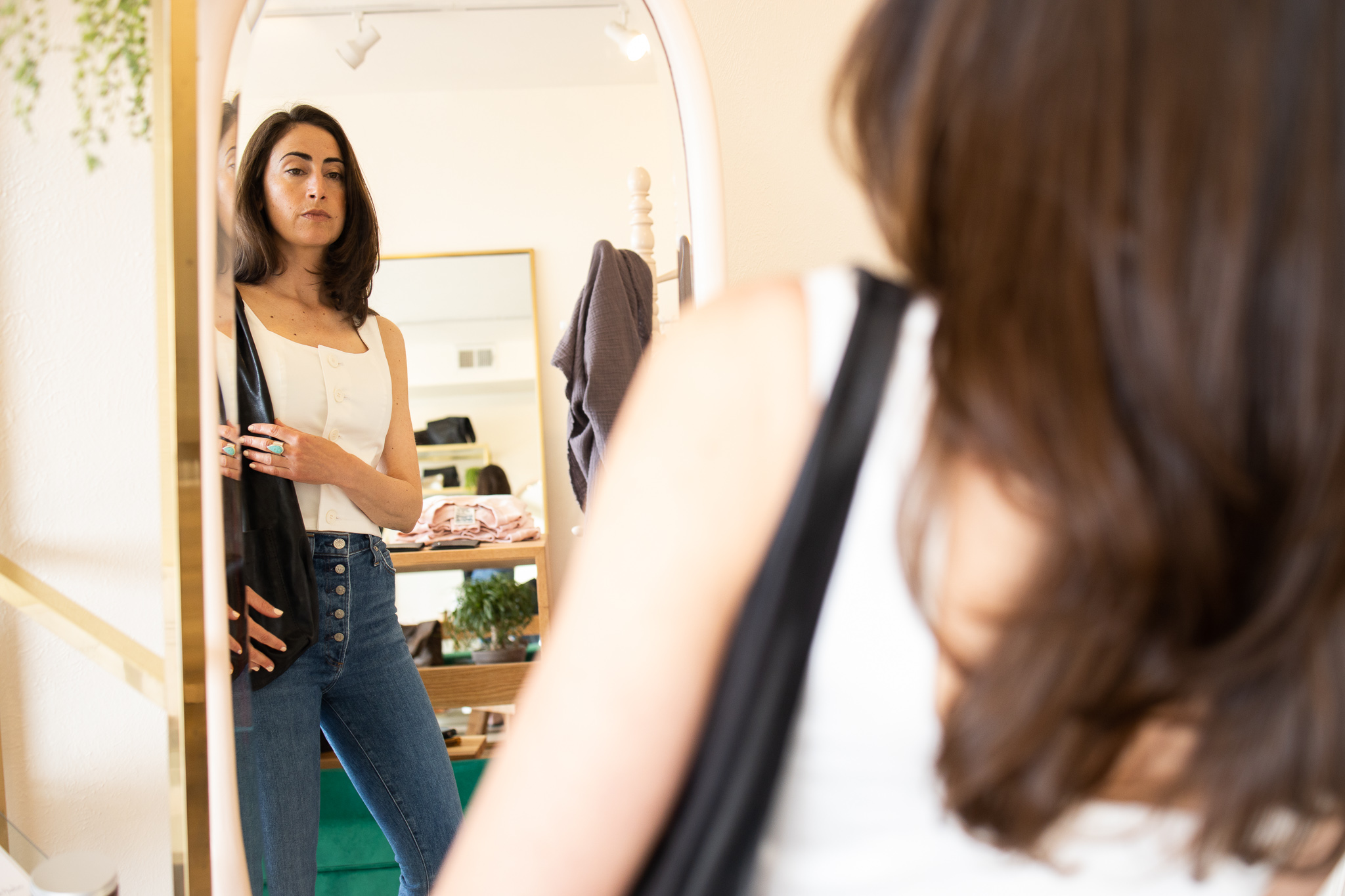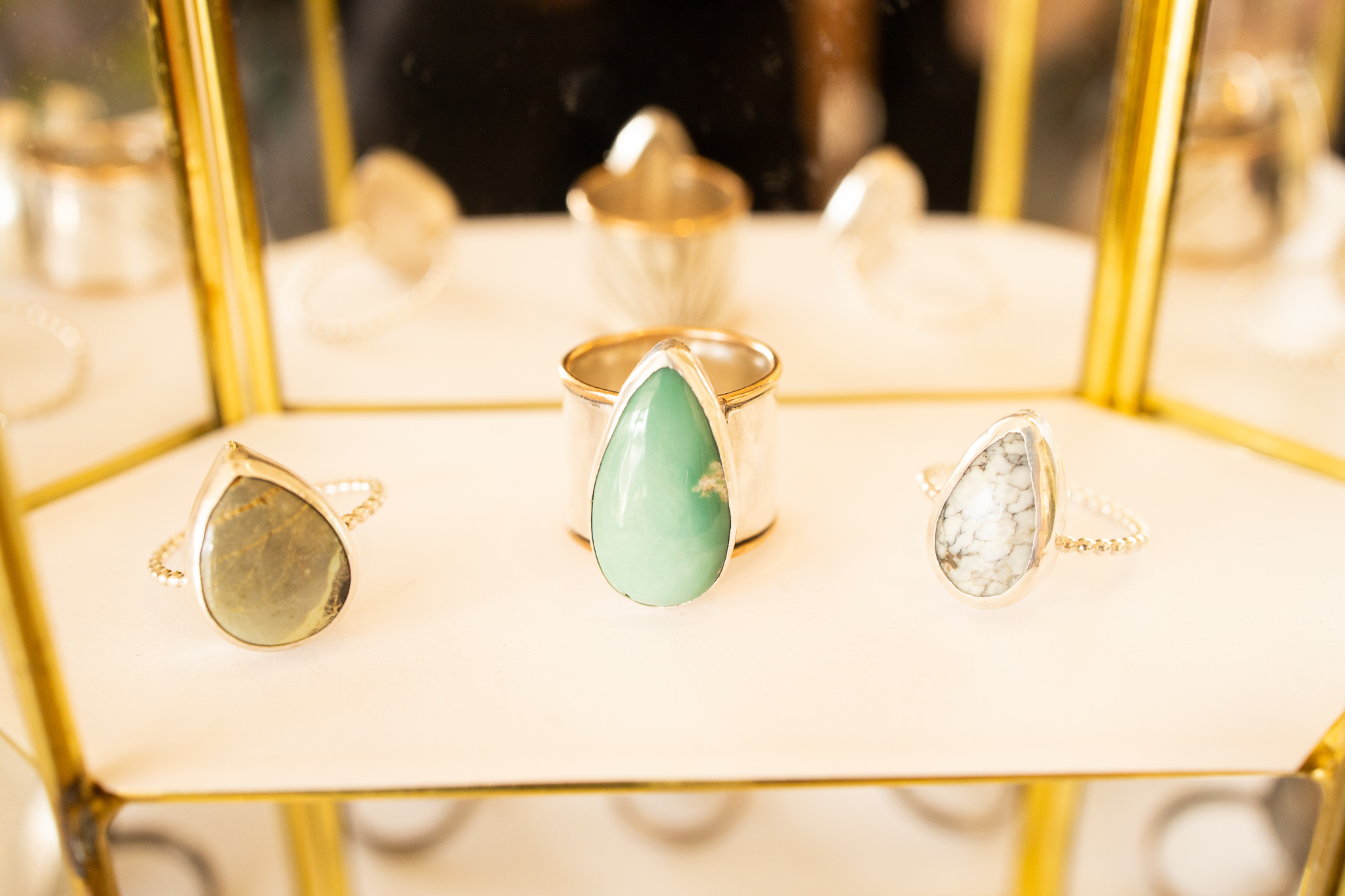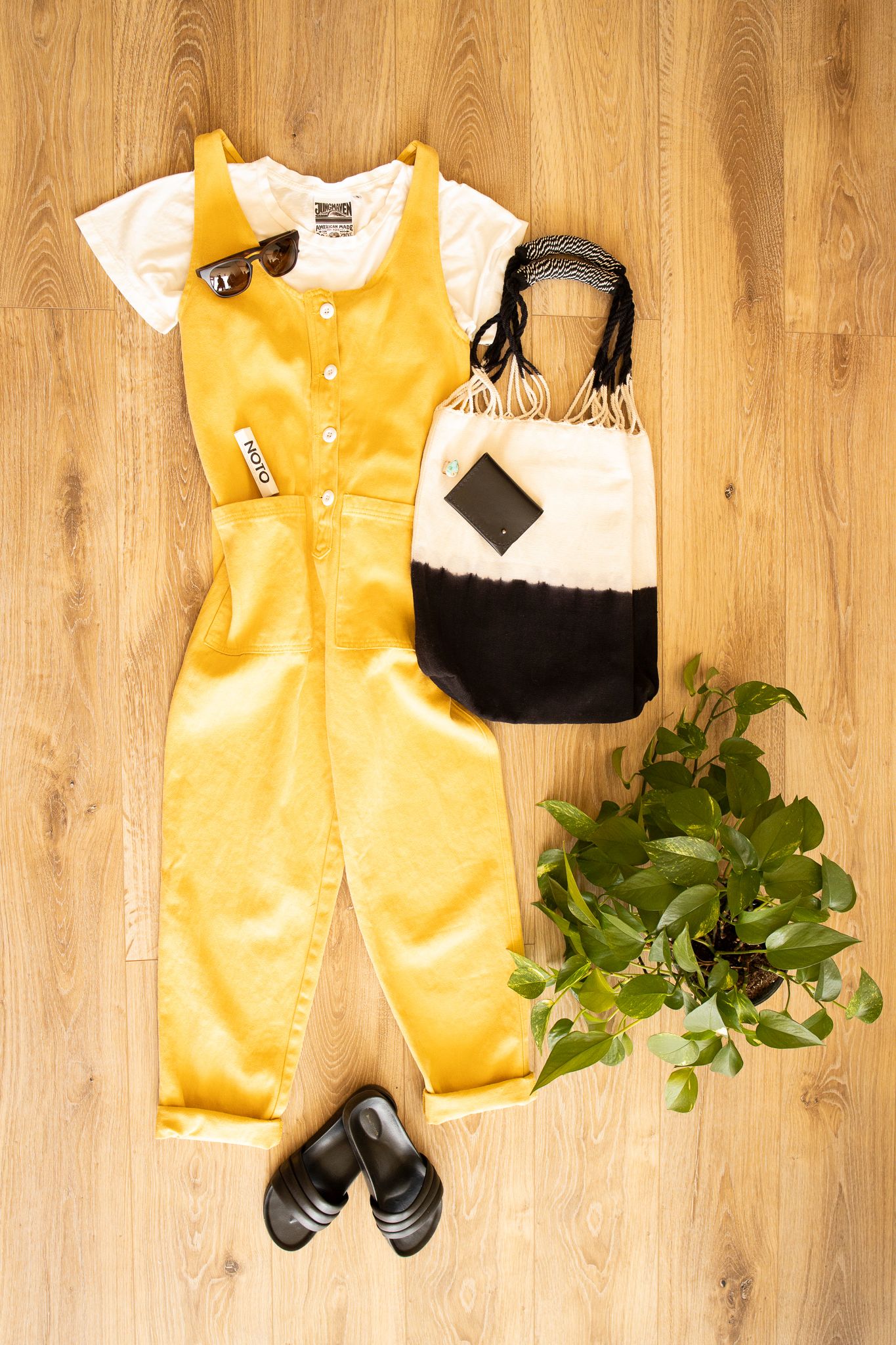Liana Hill opened her own Berkeley boutique and created her own sustainable label, Dona Forta — “strong woman” — with the belief that confident women are interested in developing their personal style rather than following the trends. “They invest in clothes and accessories of high quality with intriguing design that are in alignment with their values. They know who they are, and their sense of style is born out of their sense of self,” Hill explained. The Boston native made Denver her home and fashion her life, dedicating every day to empowering women to be the best version of themselves. We recently sat with Hill to learn more about strong women, sustainable fashion and how Dona Forta came to be.
303 Magazine: Tell us about the first moment you realized you wanted to open Dona Forta.
LH: In 2013, I read a new book by Elizabeth L. Cline called “Overdressed: The Shockingly High Cost of Cheap Fashion.” It is a thoughtful, well-researched book and it affirmed several things I’d been thinking about. I was becoming increasingly aware that much clothing on the market was very poorly made and that it could almost be categorized as disposable. Not only did it wear out quickly, but it didn’t even have enough life to be taken in by second-hand shops. These clothes were swiftly ending up in landfills.
Around that time, there were a lot of shops opening for men that focused on American heritage clothing and products. I saw a lot of these shops engaging in conversations about how things were made, who was making them, how long they would last and how they incorporated time-tested traditions and techniques. I began wishing there were more shops like that for women. [That year] is the year I began dreaming about having my own shop.
303: How do consumers help our planet by shopping ethically made products, locally manufactured and organic materials? How is fast-fashion harmful?
LH: I believe that a vital element in ethical, sustainable shopping is buying items that last. We are filling our planet, our land and our waters with so much trash. We have made strides as a culture in minimizing disposable goods in many areas of our lives, but I do still observe a lot of disposable clothing purchases. One of my tag lines is “Strong Women, Strong Clothes.” To me, strong clothes are clothes that are well made. They are a great investment because they can last for decades if they are cared for. They can also have a second life (or third or fourth) if an owner decides to pass them along. Strong clothes are the opposite of disposable clothing, which is poorly made, temporary and contributes to overflowing landfills and other environmental problems.
I am a proponent of what is natural, so I bring in and work with as many items as possible that are made with natural materials. Other areas of consideration are how the water is treated in manufacturing. Is it returned to the earth in a clean way? What types of dyes are being used? Are they toxic? What are companies doing with their fabric remnants? Are they being re-purposed? Are they energy conscious? How are their employees and other people in the supply chain being treated? The answers to these questions can be hard to ascertain. I believe we can all work to better understand how our clothes are being made, with what materials and by whom. We can be intentional about purchasing clothing whenever possible to align with our values.
One more thought on all of this. Handmade items have an essence that I believe can be experienced and observed. The mark of human touch on an item increases the amount that I personally enjoy it. It motivates me to care for it, and to keep it for a long time, therefore, I love to work with small-batch brands and directly with artisans and designers.
303: Tell us about the Dona Forta private label collection. What categories do you offer? How would you describe the style?
LH: The Dona Forta collection is intended to feel modern and timeless. It is constructed to last and has classic elements that will stand the test of time. Each piece is designed to highlight and enhance an aspect of the female form. The collection is meant to be worn doing the things women love. It allows for movement and becomes more graceful and captivating in motion. The current categories are tops, pants, dresses and jumpsuits.
303: Where is Dona Forta manufactured?
LH: The first collection (for Spring/Summer 2019) was hand-sewn by one woman, Lynne Allard, in New York.
303: What are your key items or best sellers?
LH: The Linen Swing Top is currently the best-selling item from the Dona Forta collection, with the Linen Swing Pants coming in second. Both are made with soft Italian linen. The shapes flatter many different figures and both pieces have a lot of graceful movement.
303: What are some examples of strong quality details in the Dona Forta line?
LH: One great example is The Bodice Top. It is made with a durable cotton sateen fabric with just a little bit of stretch. It is fully lined and contains no exposed seams. The two layers of fabric create structure which allows it to be worn without anything underneath if desired. It also means it lays smoothly on the skin and it is not shear (even though it is white). The buttons are made of bone up-cycled from the food industry.
Another example is the Linen Swing Top. These tops have taped seams at the neck and arm openings and french seams along the back and side. These details make it more durable, smoother on the skin and more pleasing to look at. There are no visible fabric ends.
303: What defines a strong woman? Are there women that influence you personally and in your career?
LH: This is something I have thought a lot about and it is a hard question to answer. I believe that strong women know who they are and are comfortable with who they are. They are confident because they are comfortable in their own skin. They don’t need to pretend.
As you can imagine, at this moment I am very inspired by other female business owners. My sister, Gretchen Hill, has owned Saltwater Massage Studio in Gloucester, Mass. for five years, and watching her journey has been very inspiring. I feel grateful to live in Denver, which I find to be a very entrepreneurial city. On my street, I am one of five female business owners. Casey Kochenberger from Blush, Calli Nicoletti from Miller Lane Mercantile, Bre Morris from Alchemy Face Bar and Michelle Courier from Westward Gallery. I am proud to be among them.
303: What projects do you have in the works for your brand and boutique?
LH: I am working to expand my own line and am always looking for other great brands to introduce to my customers. As a new business owner, I’m also focusing a lot of time right now getting to know my customers and the businesses around me. It is important to me to be part of the fabric of the Berkeley neighborhood and to be a vital member of the community.
303: What advice would you give women who are discovering and developing their personal style?
LH: I would say rather than focusing on what colors and clothes are on trend, pay attention to what makes you feel great. Pay attention to what makes your face light up. Pay attention to what colors enhance the beauty of your eyes and the color of your skin and your hair. Pay attention to the shapes that enhance your favorite features. If you need help with this, ask a trusted friend or family member, or go into a boutique and ask a salesperson to help you.
Most salespeople in boutiques love to help with this. Not just because it is their livelihood, it is really fun to help people feel good about themselves. Also, ask yourself which parts of your personality do you want to shine through your clothes? And this could change for different areas of your life. Clothes can be bold, soft, feminine, edgy, strong, quirky, artsy, unusual, muted, loud, sleek, sophisticated, playful and lots of other things. I would encourage people to experiment and see what makes them feel most fully themselves.
All Photography by Karson Hallaway.

